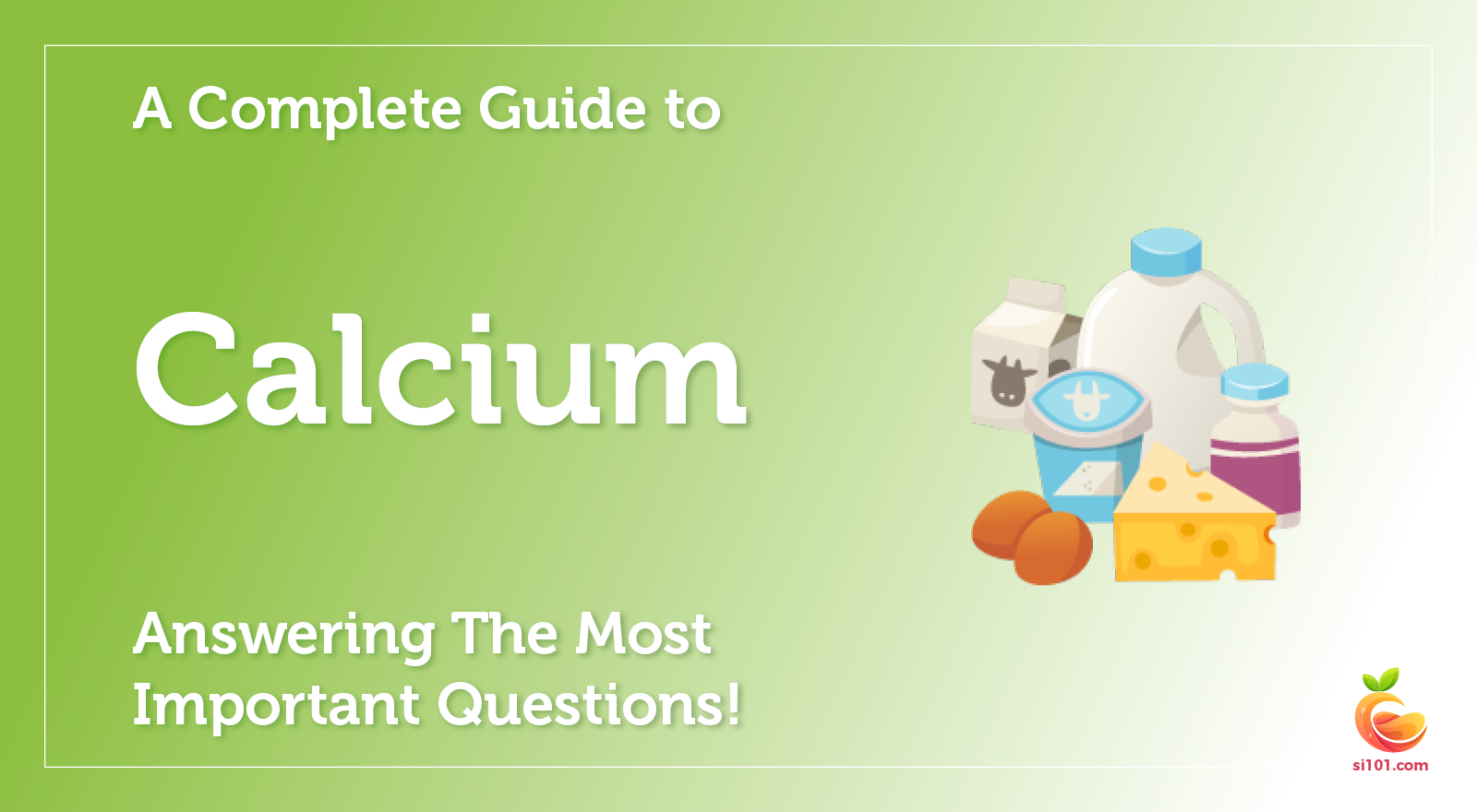What are the health benefits of calcium?
Calcium, Health Benefits
Calcium is an essential mineral for our bodies. It plays a vital role in maintaining healthy bones and teeth, as well as helping to regulate muscle contractions and nerve impulses. Without enough calcium in our diets, we can suffer from weakened bones and increased risk of fractures. But did you know that calcium also has many other health benefits?
Studies have shown that adequate amounts of calcium can help reduce the risk of hypertension, stroke, and colon cancer. Calcium helps to control blood pressure by reducing the amount of sodium absorbed into the bloodstream. This means that it can help keep your heart healthy by lowering your risk for cardiovascular disease. Additionally, calcium may help protect against colon cancer by binding with bile acids in the intestines which can reduce their toxicity levels.
Finally, calcium is important for overall bone health throughout life. Adequate intake of this mineral helps to maintain strong bones during childhood and adolescence when bone mass is rapidly increasing. As we age, it becomes even more important to ensure sufficient intake of calcium since our body’s ability to absorb it decreases over time. Eating foods rich in calcium such as dairy products or dark leafy greens like kale will help ensure you get enough of this essential nutrient each day!
What is the recommended dosage of calcium?
Calcium, Recommended Dosage
Calcium is an essential mineral that helps to keep our bones and teeth strong. It is also important for muscle contraction, nerve transmission, and blood clotting. Everyone needs calcium in their diet, but the recommended dosage of calcium varies depending on age and gender.
For adult men between 19-50 years old, the recommended daily allowance (RDA) of calcium is 1000 milligrams per day. For adult women in the same age range, the RDA of calcium is 1200 milligrams per day. After age 50, both men and women should increase their intake to 1200 milligrams per day due to increased risk of osteoporosis.
Pregnant or breastfeeding women need more calcium than other adults they should aim for 1300 milligrams per day. Children aged 4-8 require 800 milligrams a day while those aged 9-18 need 1300 milligrams a day. People who do not get enough calcium from food sources may need to take supplements to meet their daily requirements. Talk with your doctor about what type and amount of supplement would be best for you based on your individual needs.
What are the functions of calcium in the body?
Calcium, body, functions
Calcium is an essential mineral for the human body. It plays a vital role in many bodily functions and processes, from bone health to muscle contraction. In fact, calcium is the most abundant mineral in the human body and it is needed for every cell to function properly.
The primary function of calcium in the body is to help build strong bones and teeth. Calcium helps form hydroxyapatite crystals which are responsible for giving bones their strength and rigidity. Without adequate amounts of calcium, bones become weak and brittle leading to conditions such as osteoporosis or rickets.
In addition to its role in bone health, calcium also plays a part in other important bodily functions such as blood clotting, nerve transmission, hormone secretion and muscle contraction. Calcium helps regulate the heartbeat by controlling how quickly muscles contract and relax. It also helps keep blood pressure stable by maintaining healthy levels of sodium and potassium in cells throughout the body.
Overall, calcium is an essential mineral that plays a key role in many different aspects of our health including bone strength, muscle contraction and hormone secretion among others. To ensure your body has enough calcium it’s important to eat foods rich in this nutrient such as dairy products like milk or yogurt as well as dark leafy greens like kale or spinach.
How should calcium be taken?
Calcium, Vitamin D, Diet
Calcium is an essential mineral for our bodies and is important for maintaining strong bones and teeth. Its also necessary for proper muscle function and nerve transmission. To ensure youre getting enough calcium in your diet, its important to understand how it should be taken.
The best way to get calcium is through a balanced diet that includes foods rich in calcium such as dairy products, leafy green vegetables, fish with edible bones (such as sardines), tofu made with calcium sulfate, almonds, oranges and other fruits. Additionally, vitamin D helps the body absorb calcium from food sources so it’s important to make sure you’re getting enough of this nutrient too. You can get vitamin D from fortified milk or yogurt or by spending time outdoors in the sun.
If you’re not able to get enough calcium from your diet alone then taking a supplement may be beneficial. Calcium supplements come in various forms including tablets, capsules and liquids which can all help increase your daily intake of this essential mineral. However if you do decide to take a supplement then it’s important to speak with your doctor first as they will be able to advise on the best type of supplement for you based on your individual needs.
What are potential risks of consuming too much calcium?
Calcium, Potential Risks
Consuming too much calcium can have potential risks for your health. Calcium is an essential mineral for our bodies and it helps to build strong bones and teeth. However, if you consume too much calcium, it can cause a number of health problems.
Excessive amounts of calcium can lead to kidney stones or gallstones. This occurs when the body has difficulty absorbing all the calcium that is consumed and it builds up in the kidneys or gallbladder instead. High levels of calcium in the blood can also cause confusion, fatigue, nausea and vomiting.
In addition to these physical symptoms, consuming too much calcium can also increase your risk of developing heart disease or stroke due to calcification of arteries caused by high levels of calcium in the blood stream. It is important to maintain a healthy balance between dietary intake and excretion of calcium so as not to put yourself at risk for any serious health complications. Speak with your doctor about what level of daily consumption is right for you based on your age, gender and lifestyle habits.
What are natural sources for calcium?
Calcium is an essential mineral for the human body, and it can be found in many natural sources. It helps to build strong bones and teeth, as well as aiding in muscle contraction and nerve function. Getting enough calcium from your diet is important for overall health. Fortunately, there are plenty of natural sources of calcium available to everyone.
Dairy products such as milk, cheese, yogurt, and ice cream are all excellent sources of calcium. Milk is especially rich in calcium just one cup contains about 300 milligrams of the mineral. Other dairy products like cheese also contain high levels of calcium a single slice of cheddar cheese has 204 milligrams.
In addition to dairy products, green leafy vegetables such as kale and spinach are also good sources of calcium. A single cup of cooked kale contains about 180 milligrams while a cup of cooked spinach contains almost 250 milligrams! Other vegetables that are high in calcium include broccoli, bok choy, okra, collard greens and mustard greens. Nuts like almonds and sesame seeds also contain significant amounts of the mineral a quarter-cup serving provides around 100 milligrams or more depending on the type. Finally, fish with edible bones such as canned salmon or sardines provide an excellent source of calcium too – just three ounces will give you up to 325 milligrams!
As you can see there are plenty of natural sources for getting your daily dose of calcium – so make sure you’re including them in your diet!


